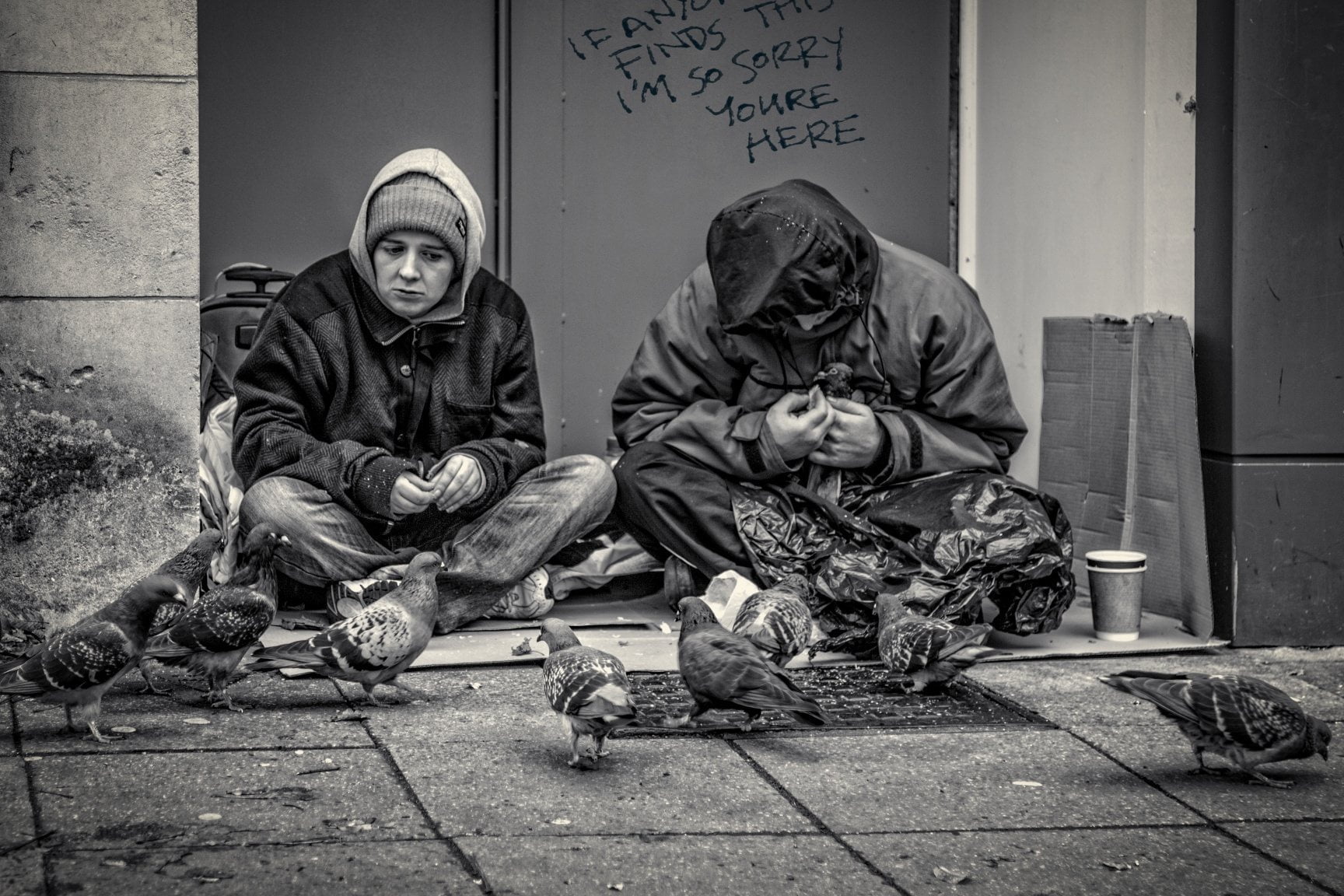The recent BBC documentary “Broke” provides a sober reflection on the savage effects of auserity, introducing us to hard working people struggling to get by. Despite its powerful message, however, it provides no solution to the crisis of austerity.
At a time when the economy is supposedly still booming, and official employment figures and bosses’ profits are at a high, a recent BBC documentary series, “Broke”, provides a much needed, sobering insight into the harsh realities of life for working people across Britain.
Billed as a look into “what it means to be in work but still ‘only just about managing’”, the series documents the trials and tribulations of nine individuals and families. We’re introduced to people like Kevin from North Ayrshire who has to work 100 hours a week in order to make ends meet; Father and son, Steve and Billy, who are homeless and live in tents on a beach in Hastings; and Lorraine, an NHS worker who hasn’t had a pay rise in eight years and has to shop in the cheap section of the local supermarket to get by.
Savage austerity
Broke does a tremendous job of illustrating the tough realities of life for the working class, whilst not demeaning or patronising those featured – we are reminded that “being broke doesn’t mean being broken”. In many ways, it provides crucial documentation of the savage effects of austerity and the crisis of capitalism which are so often glossed over by the mainstream media. For example, the series shows issues such as stagnant wages, the exploitation of insecure and vulnerable workers, rising debt, and the effect of financial struggles on relationships. Broke also examines landlordism, homelessness, and the high cost of vital services such as public transport.
In short, real issues for hundreds of thousands of workers around Britain today are highlighted in this documentary in a very human way. Certainly for many, the difficulties that ordinary people face won’t be surprising, however this documentary will enlighten many others to the hardships workers face up and down the country, and for that reason the series should be applauded.
#WatchNow – Broke – This final visit to the “just about managing” of Britain takes us to North Ayrshire, where Kevin works 100 hours a week as a cut-price funeral director, car mechanic and fast-food entrepreneur. – https://t.co/mcB0cMABtl – – #Broke #BBC #Documentary pic.twitter.com/d6GgKbQL8f
— Ray Knight Casting (@RKCasting) August 8, 2019
Left wanting
However, the series does no more than document these hardships. Barring an occasional criticism of austerity by one of the workers, there is no real attempt to explain why, for instance, Kevin has to work 100 hours a week. Or why Angelica, a migrant and an agency worker, was suspended for asking for the living wage. Or why Eryl has to work 13 hours a day but can’t afford the bus to work. Although the efforts of Angelica and Tyrone (a young McDonalds worker) to unionise and fight for better conditions are shown, the documentary itself doesn’t offer any solutions to these appalling situations either.
In failing to point the finger at the decaying capitalist system, and in failing to call for socialist policies to improve the situation of working people, Broke only offers half the story.






